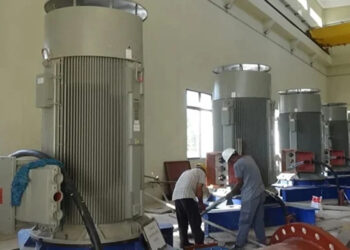Health experts in Pakistan have long been promoting breastfeeding as a natural and essential source of nutrition for newborns. However, recent discussions about reducing taxes on formula milk have sparked serious concerns among pediatricians and child care professionals.
According to details, the experts see this move as a step backward in efforts to protect infant health. They argue that just like tobacco, formula milk should be taxed higher due to its public health impact. Excessive use of formula milk and improper breastfeeding practices are already contributing to serious health problems in children, as observed in pediatric emergency rooms across the country.
Health professionals report that a significant number of children brought to emergency departments suffer from diarrhea. Formula milk is suspected to be a major contributor, especially due to unsafe preparation and bottle-feeding practices. Diarrhea is one of the leading causes of death among children under five, with an estimated 53,300 annual deaths in Pakistan, many of which could be prevented through breastfeeding.
Beyond diarrhea, children raised in unhygienic conditions and fed formula are also at ten times higher risk of dying from pneumonia compared to breastfed children. Malnutrition is another major concern, particularly in low-income households. A significant number of malnourished children treated in public hospitals are those who have been bottle-fed. Malnutrition hampers growth, weakens immunity, and can even lead to death.
Save the Children ranks Pakistan among the worst countries for child nutrition, with over 20% of children born malnourished. Experts emphasize that breast milk is a safe, free, and nutritionally complete option, especially in a country facing conflict, displacement, climate issues, and rising food prices.
Another growing issue is aggressive marketing by formula milk companies. These campaigns often mislead families into believing formula is a necessary alternative, especially for mothers suffering from undernutrition—despite the fact that even undernourished mothers can usually produce adequate breast milk. Once formula feeding begins, many mothers’ milk supply diminishes or stops altogether.
Improper preparation of formula—such as using unclean water or utensils—exposes children to infections and further health risks. Many parents also underestimate the long-term financial burden of formula milk. As costs rise, they reduce formula intake without providing proper nutritional alternatives, compromising the child’s health.
Only 48% of children in Pakistan are exclusively breastfed, although WHO recommends exclusive breastfeeding for the first six months. Experts say misinformation and lack of support for breastfeeding mothers contribute to this low rate.

































